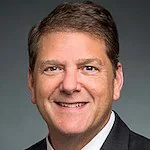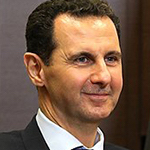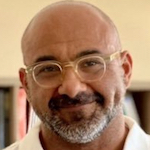An independent Scotland would be the one of the world’s most prosperous countries, one blessed with substantial energy resources and a young well-educated population, Alex Salmond, Scotland’s First Minister, told a Wall Street Journal panel this morning.
Scotland votes Sept. 18 on whether to exit the United Kingdom after 307 years.
Polls show a slight majority of Scots favor the exit. If the measure passes, Scotland would become independent in 2016.
Englishman Gerard Baker, WSJ managing editor and editor-in-chief at Dow Jones & Co. interviewed Salmond during the discussion billed as “A Nation Once More.”
He asked Salmond on whether he sees himself as a current version of William Wallace or Robert the Bruce.
Laughing, the Scottish politico rejected the comparison and noted the Wallace was drawn & quartered by the English in 1305.
14th most prosperous country
Scotland would rank as the 14th most prosperous country among members of the Organization for Economic Cooperation & Development. The U.K. ranks No. 18.
Though North Sea oil fields are in decline, Salmond said Scotland is not going to run out of oil anytime soon. There are an estimated 24B barrels of oil off its coast. Those revenues would be earmarked for the people of Scotland rather than the British treasury, according to Salmond.
Baker asked about the potential loss of global prestige for Scotland, in the event that it cuts ties with the much larger UK An independent Scotland, said Baker, wouldn’t have a seat at the “top table.”
Salmond downplayed that position. He said Scotland has always held its own on the global front as its people have played major roles in the development of the US, Canada and Australia.
He noted that a free Scotland would benefit the London government. He noted that the U.K. often holds different positions than other members of the European Union. An independent Scotland would backstop the U.K. in the EU.
Salmond thanked the US via the audience for America’s “reassertion of its leadership in consumption of Scottish whisky.” At one point, Salmond was worried about the US market because France was “catching up” to the US.
An independent Scotland would continue use of the pound sterling as its national currency, though Westiminster maintains that would not be possible.
Salmond told the audience that Belgium and Luxembourg shared the same currency for 70 years before adoption of the euro.
On the defense front, Scotland would join NATO, but remove the Trident nuclear missile systems from Britain’s Faslane naval base in Scotland.
On the media front, the nation of more than five million people would create a new publicly funded broadcast network, Scottish Broadcast Service. Initially, it would be based at BBC Scotland. The SBS hopes to establish a joint programming venture with the BBC
Salmond said Scotland would adopt the can-do spirit of the U.S. He contrasted Baker’s doubting the benefits of Scottish independence to that of the host of the “Morning Joe” TV news show.
During his guest appearance, Joe Scarborough asked Salmond, “Why would anybody vote against independence?”


 Edelman is providing communications support to Panama’s Ministry of Commerce and Industries under an agreement capped at $97,100 per month.
Edelman is providing communications support to Panama’s Ministry of Commerce and Industries under an agreement capped at $97,100 per month. Ballard Partners has recruited State Department veteran Matt Bryza as a senior policy advisor.
Ballard Partners has recruited State Department veteran Matt Bryza as a senior policy advisor. Teneo has extended its contract with the Salama Bint Hamdan Al Nahyan Foundation for an additional four months to July 31, adding another $1.8M in fees to the New York firm’s coffers.
Teneo has extended its contract with the Salama Bint Hamdan Al Nahyan Foundation for an additional four months to July 31, adding another $1.8M in fees to the New York firm’s coffers. The Syrian Kurdish militia recruits Jim Dornan Strategies to press Congress for continued support in their battle against ISIS and Syrian president Bashar Assad.
The Syrian Kurdish militia recruits Jim Dornan Strategies to press Congress for continued support in their battle against ISIS and Syrian president Bashar Assad. The Government of Hungary has hired Strategic Improvisation Inc. to generate positive media coverage and combat negative press coverage of the Central European country. (6 reader comments)
The Government of Hungary has hired Strategic Improvisation Inc. to generate positive media coverage and combat negative press coverage of the Central European country. (6 reader comments)


 Have a comment? Send it to
Have a comment? Send it to 
No comments have been submitted for this story yet.